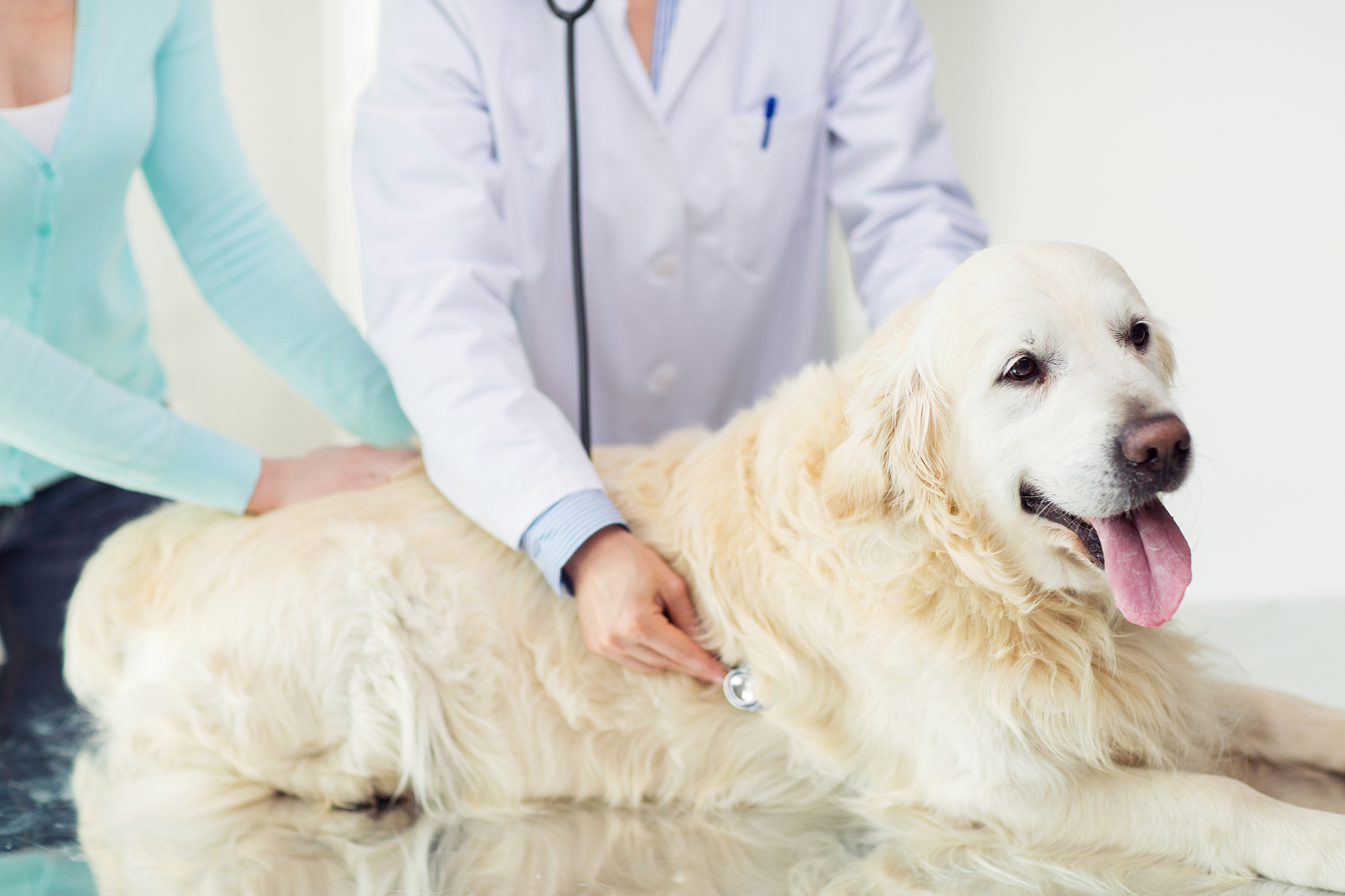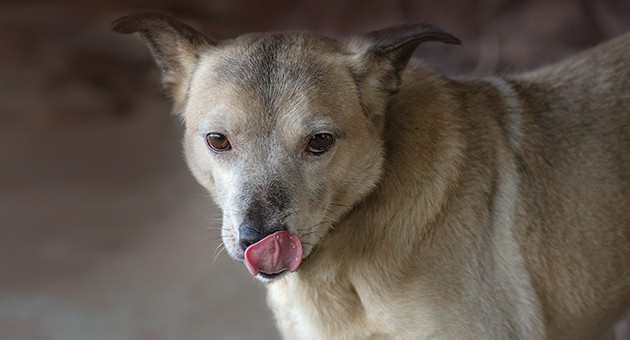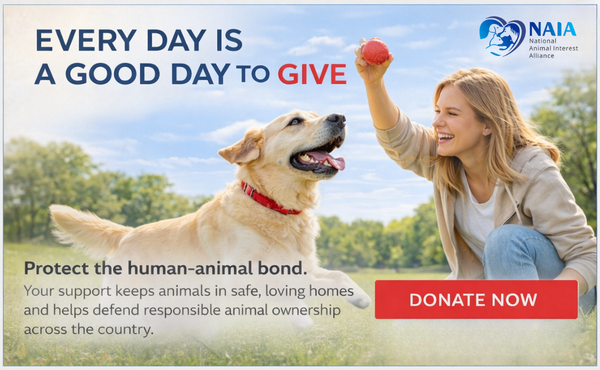 The American Veterinary Medical Association House of Delegates (AVMA HOD) has coming before it a proposal to govern how veterinarians work with dog breeders. At first blush, this document seems benign enough: the title is “Inherited Disorders in Responsible Breeding of Companion Animals.” Sounds like mom and apple pie – no one wants to breed dogs with inherited disorders. But in merely four sentences, they pick out specific defects and breeds as examples. This begs the question of which breed or defect is next? Furthermore, much of the language in this document is imprecise. It states “only animals without deleterious inherited disorders are selected for breeding.” Who decides what is deleterious? And what will we discover in coming decades that turns out to be inherited that we don’t think is inherited now? Parvovirus and Pyometra are frequently categorized as viral and bacterial diseases, but both have a breed predilection that suggests a genetic component - this can only mean these are inherited disorders.
The American Veterinary Medical Association House of Delegates (AVMA HOD) has coming before it a proposal to govern how veterinarians work with dog breeders. At first blush, this document seems benign enough: the title is “Inherited Disorders in Responsible Breeding of Companion Animals.” Sounds like mom and apple pie – no one wants to breed dogs with inherited disorders. But in merely four sentences, they pick out specific defects and breeds as examples. This begs the question of which breed or defect is next? Furthermore, much of the language in this document is imprecise. It states “only animals without deleterious inherited disorders are selected for breeding.” Who decides what is deleterious? And what will we discover in coming decades that turns out to be inherited that we don’t think is inherited now? Parvovirus and Pyometra are frequently categorized as viral and bacterial diseases, but both have a breed predilection that suggests a genetic component - this can only mean these are inherited disorders.
All dogs, purebred or mixed breed, have genetic defects. The purebred dog fancy’s goal to chase down and breed away from genetic diseases speaks to their level of responsibility and care for the future of their breed, not to the fact they have genetic flaws. The increasing number of recognized disorders and the development of DNA tests to find the genetic basis of these disorders is evidence breeders are increasingly intolerant of breeding dogs with genetic defects. It should not be interpreted to mean that purebred dogs have more disorders, only that we understand them better. Our current population of dogs is living longer than any previous generation. As nutrition, disease prevention and management improve, and as we embrace delaying the age of spaying and neutering, we can expect ever better longevity.
***
 We are already experiencing a narrowing of the gene pool when well-meaning but misguided or peer-pressured breeders throw “carrier” status dogs out of the breeding pool of animals. We are already experiencing a narrowing of the gene pool when well-meaning but misguided or peer-pressured breeders throw “carrier” status dogs out of the breeding pool of animals. |
One unintended consequence of this AVMA HOD document is that breeders and buyers may misinterpret how to use the DNA data. We are already experiencing a narrowing of the gene pool when well-meaning but misguided or peer-pressured breeders throw “carrier” status dogs out of the breeding pool of animals. These “carrier” dogs, with autosomal recessive genetic defects can and should be used for breeding – “carrier” dogs bred to a “clear” produce only “carrier,” never “affected” offspring. When “carrier” animals are eliminated, we are making the gene pool smaller, and actually increase the risk of magnifying other genetic diseases. Additionally, when we put genetic pressure on our breeding stock, we may inadvertently increase genetic defects by selecting against certain disorders.
In fact, all of us as humans have genetic flaws. In spite of the fact humans are the most outcrossed species on the planet, all of us still have some kind of genetic flaw. My mom has hip dysplasia and my dad has allergies – and they bred anyway, producing me, free of both disorders - lucky for me!
We already have frighteningly small gene pools in many breeds, with some like the Otterhound, numbering under 1000 in the world, nearing extinction. Only with careful management of breeding programs and assistance from geneticists will we be able to maintain many breeds of dogs. Frozen semen that dates back to the 1970s and 1980s will be a crucial resource in restoring genetic diversity. {For those of you with frozen semen, please do not destroy it but rather work with the AKC and your breed clubs and colleagues to retain and manage this important resource.}
We need to look at our purebred dogs as endangered. The only genetic material we have in each breed is already locked down, with no new incoming genetic material except for the occasional and likely undesirable mutation. Some are already proposing the “outcrossing” of breeds, not within the breed but actually bringing in the genetics of other breeds to “improve” their breed.
I have spent 34 years of my veterinary career working with dog breeders. I am Chairman of the Board of the National Animal Interest Alliance, a former member of the AVMA Judicial Council, and former member of the board of the Society for Theriogenology. I too am a breeder and compete with my dogs. The breeders we work with in our 6 doctor practice in Wisconsin are kind, smart, dedicated, hard-working people who want nothing more than to breed their next generation of dogs to be healthier and better than the last generation. They spend countless hours poring over pedigrees and consulting their fellow breeders and veterinarians to determine what the next best genetic mix will be. I have NEVER met a breeder who says they want to breed a dog with a genetic defect, who suffers, and will have a short lifespan.
The Society for Theriogenology and American College of Theriogenologists are the veterinary experts in animal reproduction. They work with livestock and companion animals and their owners on a full-time basis, not only executing breedings and managing fertility of their patients, but counseling owners on the logistics and ethics of animal reproduction. In 2011, the Theriogenology groups adopted a position statement titled “The Welfare of Breeding Animals,” reprinted below. It contains language that is far more comprehensive and better crafted than this recently developed AVMA document that from outward appearances looks like an effort to stop the breeding of all dogs, purebred or mixed breed.
There are several broad categories of breeders, but unless we find a way to help all dog breeders manage their genetics, we as a society will no longer have a sufficient and suitable number of US bred dogs for people to love as family members, working dogs, or in competitions. And as veterinarians, our small animal practitioners will go the way of the equine veterinary community when the automobile was invented.
 Aren’t we better off guiding dog breeders and aiding them in selecting appropriate breeding stock, rather than slamming doors shut? Aren’t we better off guiding dog breeders and aiding them in selecting appropriate breeding stock, rather than slamming doors shut? |
Rather than encouraging breeders to seek veterinary care in screening their breeding dogs, will this new proposal instead serve to drive breeders underground and breed without educated, ethical veterinary input? What will the short term and long term ramifications of this be to veterinarians and their staff, their breeder clients, and the consumers who still desire to own well-bred dogs? What will the replacement source of dogs become? Will this lead to the further legal and illegal importation of dogs from outside the United States, where there is no oversight on the quality of dogs bred and the conditions under which the dogs are raised? Aren’t we better off guiding dog breeders and aiding them in selecting appropriate breeding stock, rather than slamming doors shut?
Ask your veterinarian to talk to her or his AVMA Delegate to carefully consider this proposal. Ask them to recall and redraft this proposal into one that is more friendly to the ongoing breeding of healthy, happy dogs within the United States by our high quality, conscientious, skilled and educated breeders with appropriate veterinary oversight. The AKC, National Animal Interest Alliance, AVMA Ethics Board, local and national breed clubs, and the 3 affiliated Theriogenology groups along with interested veterinarians can join together in drafting a more effective and useful ethical tool to guide breeders.
Ask them to consider using the Position statement from the Theriogenology group (see below) or the following short statement: “The AVMA supports scientifically valid and reliable data as the basis for the responsible breeding of companion animals to minimize inherited disorders. The AVMA encourages veterinarians to continue their education in the emerging area of genetic disease causation and consequences to enable veterinarians to educate breeders, pet owners, and the public.”
Society for Theriogenology’s Position Statement on the Welfare of Breeding Dogs:
The American College of Theriogenologists and Society for Theriogenology promote the breeding of healthy, genetically superior dogs to maintain a diverse canine population that meets the needs of society for companion dogs and working dogs. The College and Society support practices to promote optimal health of all breeding dogs. Purpose-bred dogs are maintained subject to regulation by institutional and government agencies, while similar guidelines for non-institutional breeders are lacking. This position statement refers to care and management of breeding of dogs intended for personal ownership. It is the position of the ACT and SFT that:
- Animals must be provided water, food, proper handling, health care, and environments appropriate to their species and use, and should be cared for in ways that prevent and minimize fear, pain, distress, and suffering.
- Specifically, all breeding animals should be housed in clean, properly sized facilities that permit them to express normal behavior, include environmental enrichment, and are appropriate for stage of life. Male and female dogs may be co-housed in social units except for those times when bitches are in estrus. Specific attention to individual temperament to avoid inter animal aggression is required. Regular observation of and interaction with dogs by handlers must occur.
- Dogs should have access to a balanced diet that is appropriate for their life stage and fed to them in a manner that will permit them to maintain a body condition score (BCS) of 4 or 5 out of 9, excepting certain breeds of dogs such as sight hounds that are naturally lean in body type. Fresh water should be available. Dogs should have routine health care and disease prophylaxis including regular veterinary examination, vaccination, internal and external parasite control, dental care and coat care when applicable.
- Dogs intended for breeding should be evaluated for hereditary disorders before being bred. Owners of breeding dogs should develop a breeding plan with a veterinarian to minimize or eliminate production of puppies with hereditary defects.
- All dogs intended for breeding should be appropriately tested for canine brucellosis to prevent spread of this disease. At a minimum, both members of a breeding pair should be tested prior to each breeding. All dogs intended for breeding should be regularly tested for canine brucellosis, either at the time of breeding or every six months.
-Intact male dogs should be regularly evaluated by a veterinarian for prostate and testicular disease. Bitches should be regularly evaluated by a veterinarian for pyometra and mammary neoplasia. Decisions about when to spay or castrate individual dogs and bitches no longer intended for breeding should be made with the counsel of a veterinarian.
- Bitches should not be bred before they are physically mature and should not be bred on the first estrous cycle without the advice of a veterinarian.
- Bitches may be bred on consecutive estrous cycles if they maintain or regain their breed appropriate body condition and are deemed healthy on the basis of veterinarian examination prior to the onset of the next proestrus.
 |
Like this article? Don’t forget to share, like or follow us |
 |
NAIA WEEKLY ROUNDUP
FEATURED & LATEST ARTICLES
GET THE NAIA WEEKLY ROUNDUP VIA EMAIL FOR FREE
Stay Connected with The NAIA: Sign Up for The Weekly Roundup
Join our FREE newsletter and community of animal advocates and receive The NAIA Weekly Roundup straight to your inbox. Stay in the loop with the latest news, events, and ways you can make a difference in the lives of animals. Sign up now to stay informed to create positive change!
Sign Up



 Copper Overdose at the Zoo, Owner of Killer Dogs Found Guilty, and More!
Copper Overdose at the Zoo, Owner of Killer Dogs Found Guilty, and More!
 The Great Veterinarian Shortage: Farm Edition, Elephant Rampage, and More!
The Great Veterinarian Shortage: Farm Edition, Elephant Rampage, and More!
 Full House, (More) Dangerous Dogs, and Bugs!
Full House, (More) Dangerous Dogs, and Bugs!
 NAIA at CITES CoP20, Unexpected Animal Interest Alliances, and More!
NAIA at CITES CoP20, Unexpected Animal Interest Alliances, and More!



